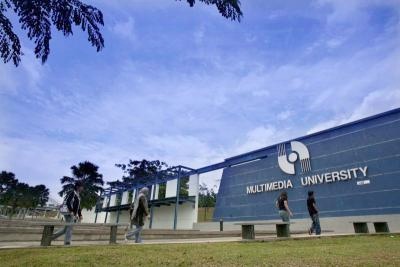This four-year programme trains future engineers in the design, implementation and management of communication systems for processing and transmitting information, as well as creation of applications for mobile systems and Internet- based services. Students will be exposed to the technical fields of analogue and digital communications, antenna and propagation, mobile and satellite communications, telephony, information theory, data communications, electromagnetic waves, optical communications, 4G technologies and beyond.
In addition, there will be intensive training in engineering mathematics, electronics, circuit and signals, computer and microprocessor systems, data communications and networking, electromagnetics, control theory, programming and power systems. A good coverage of subjects in management, economics, accounting and law is also emphasised. Students are required to undergo industrial training, implement capstone and graduate projects to cultivate skills and capabilities in practical problem-solving, system design, project implementation and management. By so doing, graduates are better prepared to address the challenges of an increasingly complex and rapidly evolving telecommunications industry.
Entry Requirements
-
-
- Pass Foundation/Matriculation studies in related field from a recognised institution; OR
- Pass STPM or its equivalent with a minimum of Grade C (GP 2.00) in Mathematics and Physics; OR
- Pass A-Level with a minimum of Grade D in Mathematics and Physics; OR
- Pass UEC with a minimum of Grade B in at least five (5) subjects inclusive of Mathematics and Physics; OR
- Recognised Diploma in Engineering / Engineering Technology or its equivalent with minimum CGPA 2.00; OR
- Pass DKM /DLKM/DVM with a minimum CGPA of 2.50. Candidates with CGPA below 2.50 MUST have at least two (2) years of work experience in the related field.*; OR
-
Note
*DKM /DLKM/DVM candidates may be required to undergo Bridging Programme as an additional requirement.
Programme Structure
Core
Year 1
Engineering Mathematics 1
Circuit Theory
Electronics 1
Computer and Program Design
Field Theory
Electronics 2
Engineering Mathematics 2
Algorithms and Data Structures
Introduction to Machines and Power Systems
Instrumentation and Measurement Techniques
Digital Logic Design
Electronics 3
Year 2
Engineering Mathematics 3
Microcontroller and Microprocessor systems
Circuits and Signals
Electromagnetics Theory
Fundamental of Wireless Communications
Computer Organisation and Architecture
Information Theory and Error Coding
Antenna and Propagation
Data Communications and Networking
Industrial Mathematics
Year 3
Digital Communications
Communications Networks
Digital Signal Processing
Capstone Project
Industrial Training
Embedded IoT Systems and Applications
Year 4
Project
Analog Communications
Advanced Networking Techniques
Control Theory
Optoelectronics and Optical Communications
Elective Modules
Java Technology
Random Signal and Network Analysis
RF Measurement Techniques
Power Electronics
Software Engineering
Multimedia Technology and Application
Digital Image and Video Processing
Digital System
Introductory Data Science
Introductory Data Visualization
Object Oriented Programming with C++
Cybersecurity
Electromagnetic Interference
Introductory Mobile Programming
VLSI System Design & Modeling Technique
RF Circuit Design
Satellite Communications
Radio Network Planning Towards 5G
AI System & Application
University Subjects
Project Management
Engineer and Society
Law for Engineers
Workplace Communications
Character Building
Character Development
Philosophy and Current Issues
Appreciation of Ethics and Civilisations/Bahasa Melayu Komunikasi*
Integrity and Leadership
Co-curriculum
*International students
Career Prospects
Telecommunications Network Engineer, Telephony Engineer, Switching and Transmission Engineer, Broadcast Engineer, Wireless Hardware Development Engineer, Radio Frequency Design Engineer, Embedded Wireless Software Engineer, Mobile Applications Developer, Telecommunication Equipment Engineer, Project Manager, or Sales & Customer Support Engineer.














